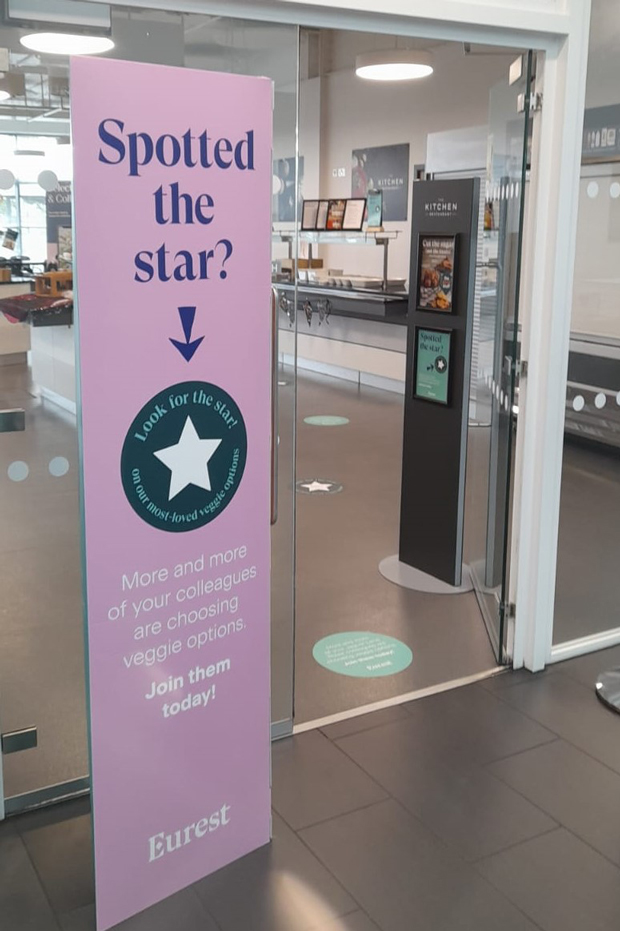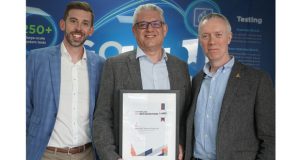National contract caterer, Eurest, is working with PhD students at the University of Oxford to explore the impact of social norms on how consumers choose what they eat in a workplace restaurant.
The impact of peer choice and peer review is well known in business, but Eurest wants to discover whether clever marketing messages, which signpost vegan and vegetarian meals as being popular, can steer people towards healthy and sustainable diets.
It is the second time Eurest has partnered with the University, having already worked with them to trial the LEAP sustainability food labelling system, which labels recipes from A to E based on their impact on the environment.
Rees Bramwell, Head of Nutrition and Sustainability at Eurest, said: “This project is taking our work with the University of Oxford to the next level, seeing what truly has an impact on consumer choice. This is about how we can nudge people towards food options which are better for the environment.
“There’s a lot of research which shows people are influenced by their colleagues when it comes to what they buy in the High Street. So, can it be applied in the workplace restaurant and used as a force for good?
“The kind of marketing messaging we are testing includes signposting plant-based options using sales data to say, ‘More and more of your colleagues are choosing veggie options, join them today!’.”
Dr Rachel Pechey, Postdoctoral Researcher in Health Behaviours at the University of Oxford, commented: “Food plays a huge role in our changing climate, contributing up to a third of global greenhouse gas emissions.
“Our work with Eurest will provide robust evidence to help understand whether perceptions of ‘typical’ behaviours and attitudes in particular settings can influence people to switch to more sustainable options.”
Bramwell added: “The trial is still ongoing, but we’re excited to see what it delivers.
“We believe this research can help lead our industry toward necessary food system change. Food service businesses – and in fact, any food companies – can use it to be more informed on how they can bring consumers on a planet-positive journey.
“It’s part of a long-term vision to work with the University of Oxford on a range of exciting projects – and it’s a two-way relationship. For the University, working with a national workplace caterer which serves both business and industry workers in every area of the country is valuable for research and covers most demographics.”
The academic papers will be available to others, for the benefit of the industry.
FMJ in conjunction with Grundon Waste Management is pleased to launch the 2023 waste management and recycling survey which examines the ways in which FMs approach their waste management responsibilities.
In this, the sixth year for the annual appraisal, we know there is a greater opportunity than ever for FMs to reappraise their waste and recycling operations and help their organisations meet the growing pressure to achieve ESG goals.
We want to learn how FMs have adapted to the legislative, economic and societal changes of the past year and how they plan to meet the latest waste and recycling targets.
In this survey we’ve posed a series of questions which include insights into FMs’ waste management strategy and targets, how they’re moving towards zero waste targets, and the importance of not just meeting compliance targets but also ESG goals.
The results of the 2023 survey will be published in FMJ magazine and form the basis of a white paper co-written by FMJ and the experts at Grundon on how to approach waste and recycling strategies.
To take part click here.





